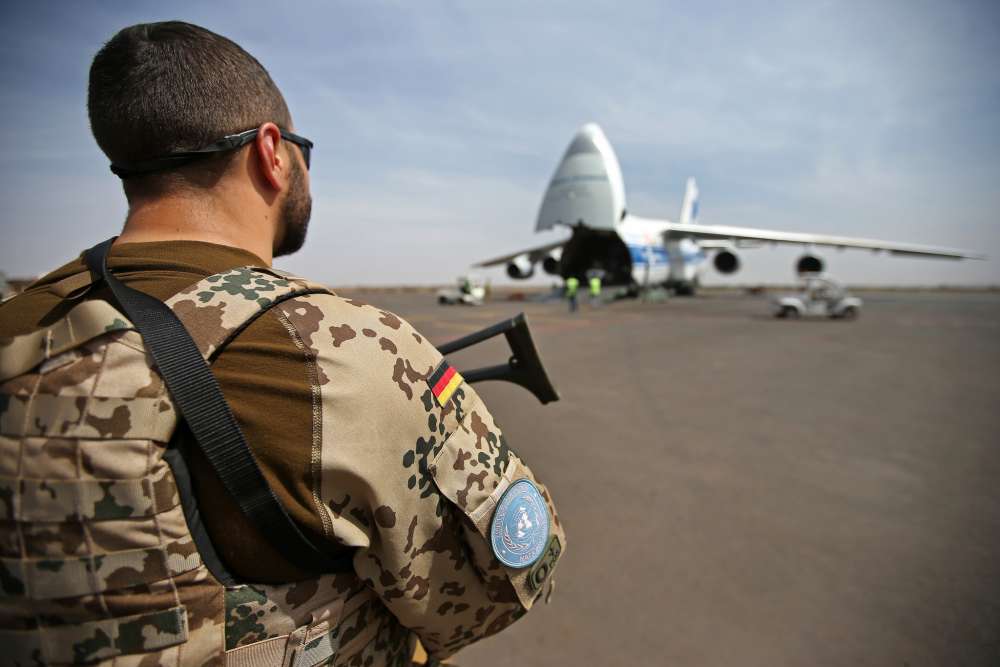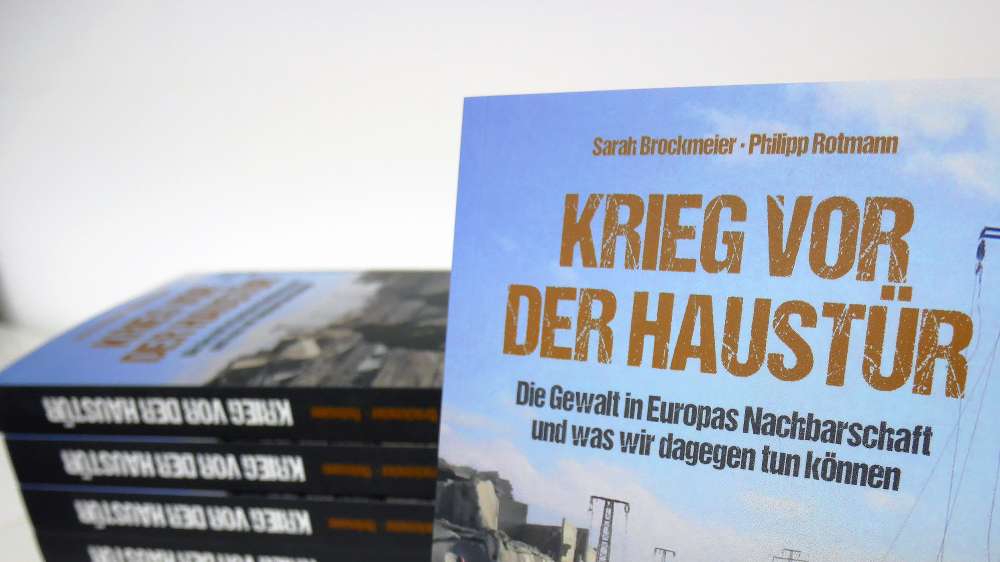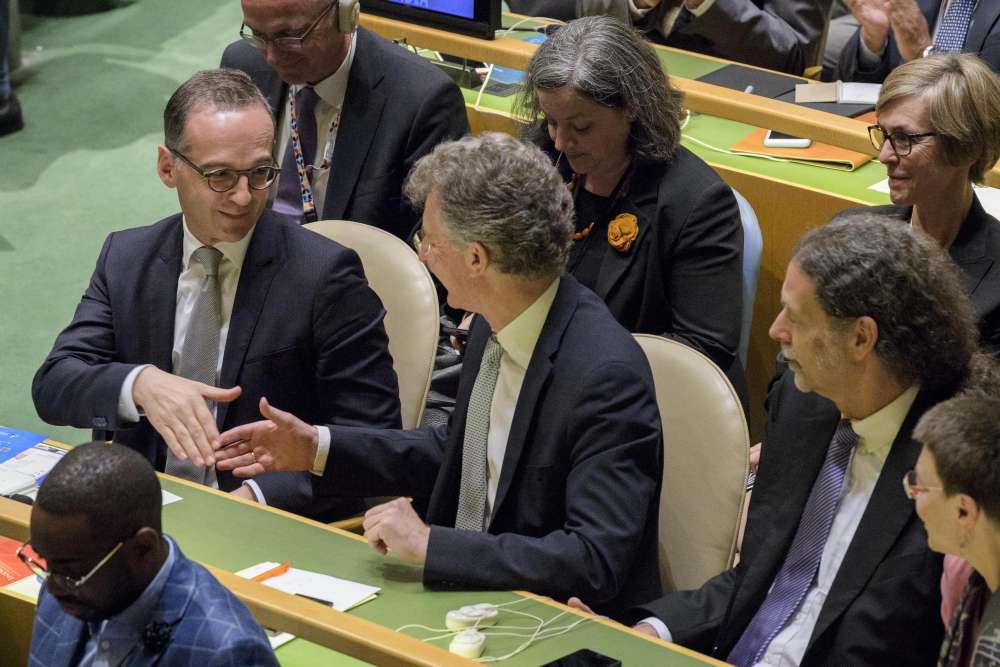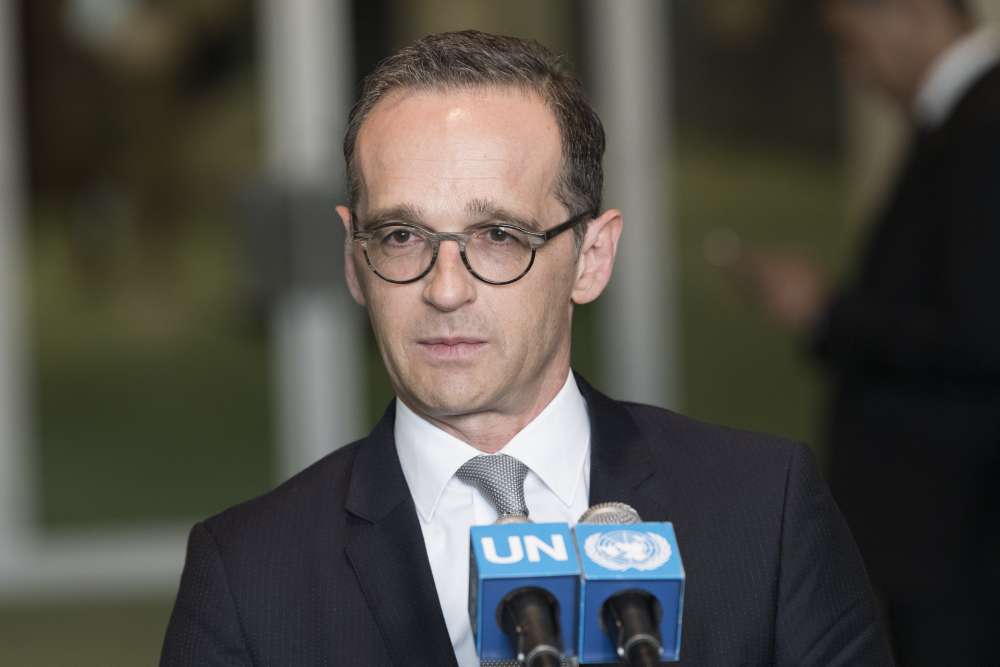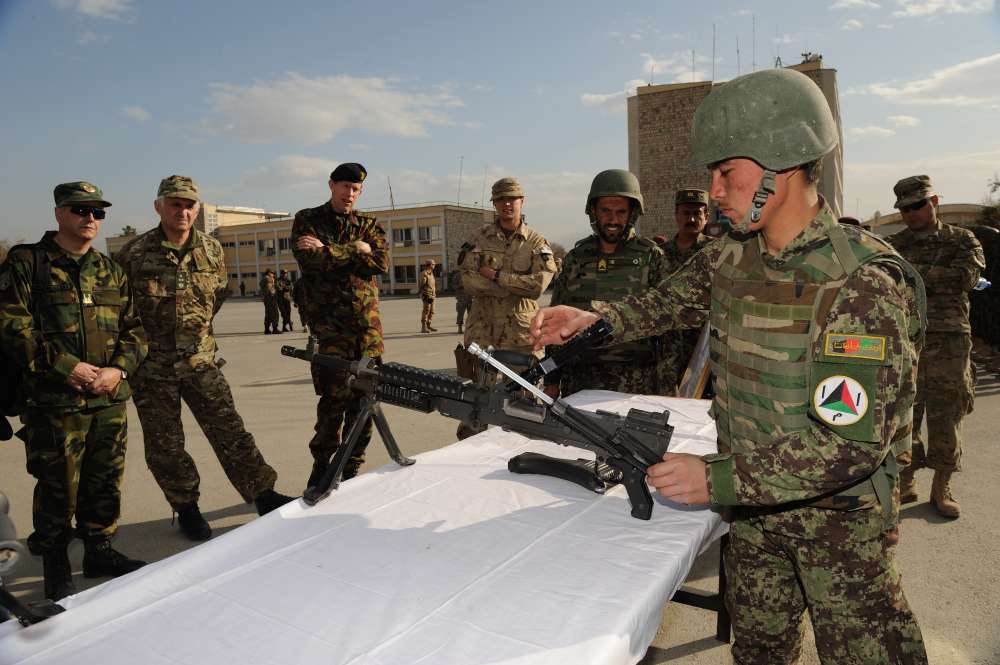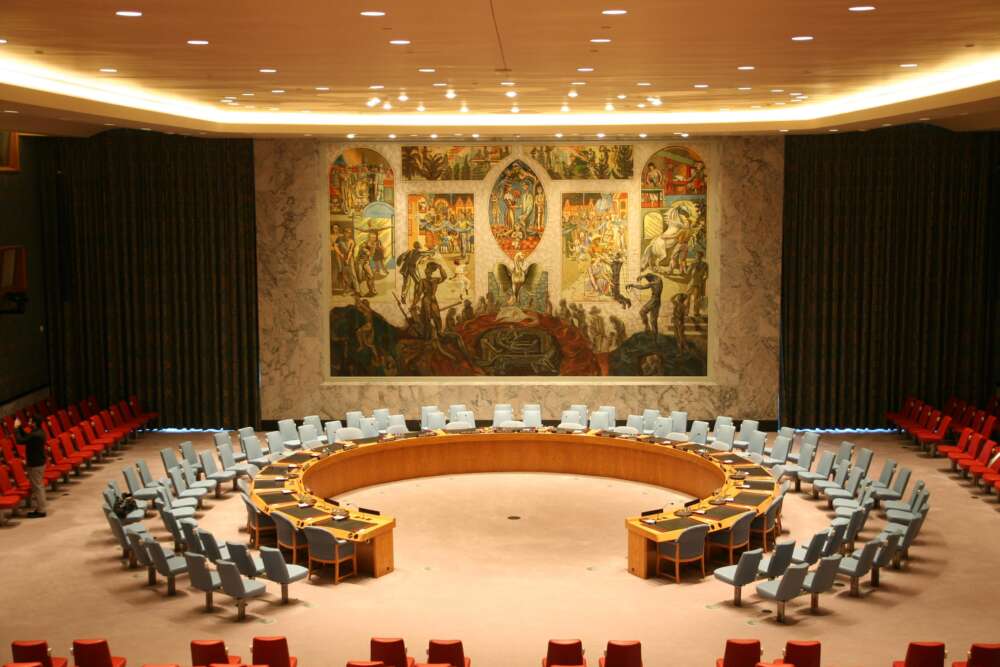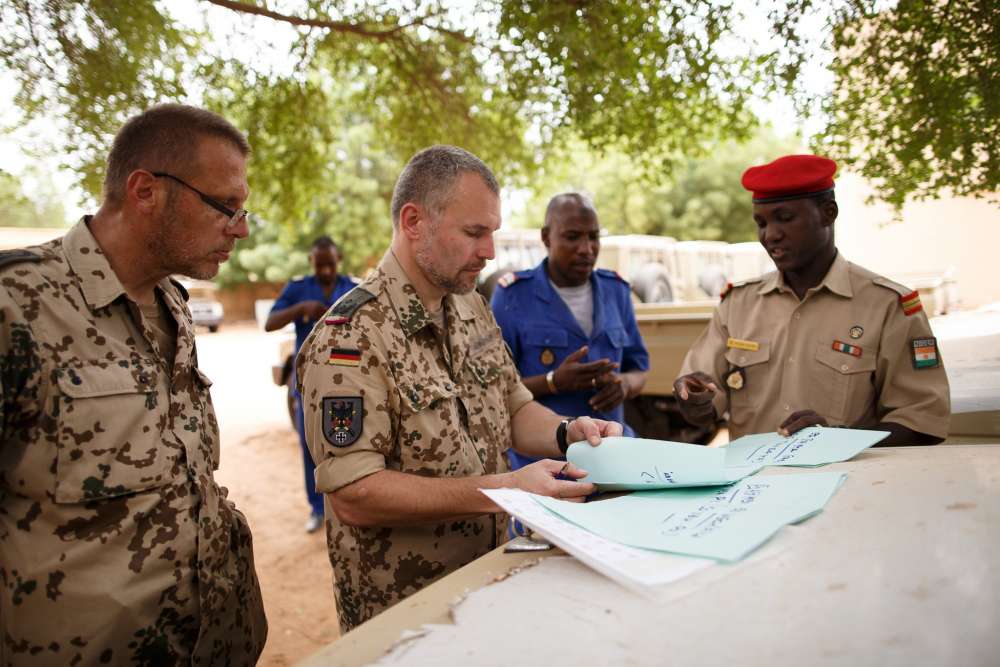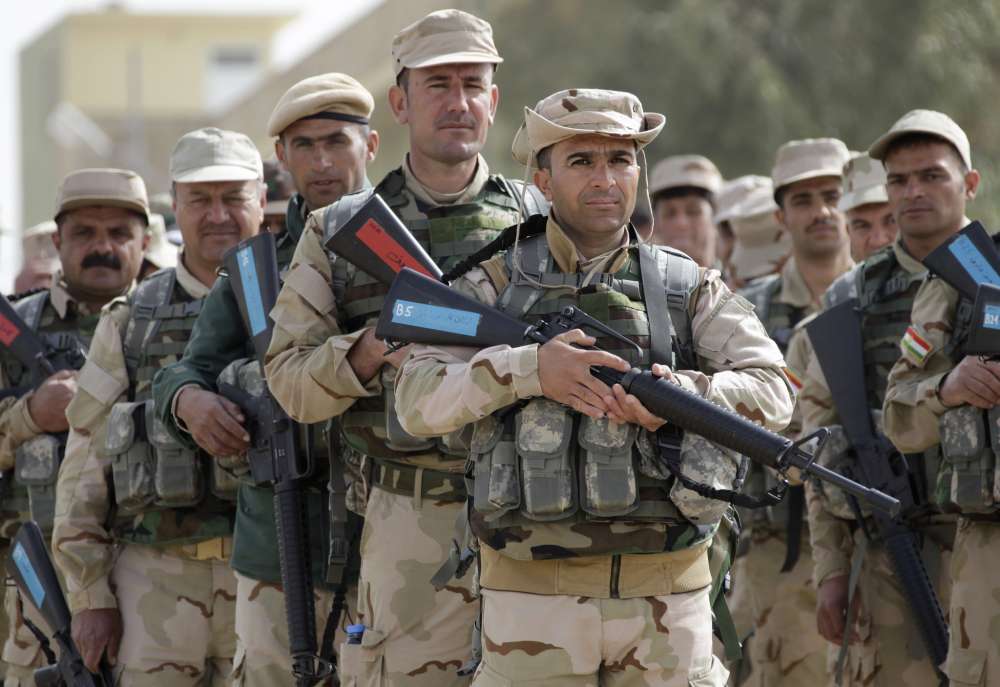Germany Rarely Has a Strategy for Managing International Crises
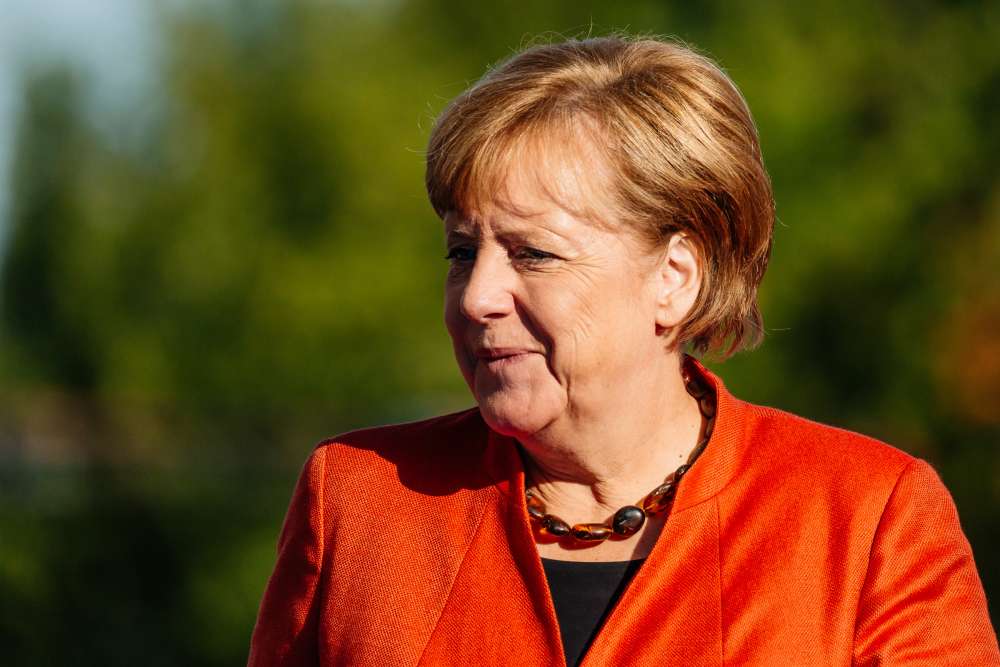
At the Munich Security Conference in 2014, then German President Joachim Gauck called for Germany to assume more responsibility in managing international crises, commensurate with the country’s economic and political importance. This weekend, the who’s who of international security will meet again in Munich.
In an interview with DIE WELT, published on February 13, GPPi’s Philipp Rotmann explained the most pressing issues for Germany.
DIE WELT: Mr. Rotmann, has Gauck’s Munich speech changed German security policy in the past five years? Has the Federal Government acted earlier, more decisively and more substantially since then?
Philipp Rotmann: So far: not really. Take the Iraq conflict: the Federal Government only took action when IS was practically at the gates of Baghdad. That being said, then Germany broke the long-standing taboo on arms supplies into an active conflict – so it did proceed somewhat more decisively and substantially.
There are other examples that show that the President’s reminder – which was flanked by identical speeches by then Foreign Minister Steinmeier and Defence Minister von der Leyen – has in some cases already become a commitment that Germany is living up to: in the Ukraine crisis, for example. At the same time, by no measure was everything as successful as Gauck had imagined it would be at the time of his speech. He wanted a paradigm shift towards a strategic foreign policy that sets concrete goals and develops the necessary means to achieve them. That is not in sight.
WELT: The most important person in the federal government – Angela Merkel –doesn’t seem to have taken this on board. Or did we overlook something?
Rotmann: No, the Chancellor rather ignored the speech. But she did not oppose it either – later, she formulated something similar in her typical, very cautious way. Think of the famous Trudering beer tent speech of 2017, when she pleaded for “a bit more independence from the USA.”
Still, the truth is that Mrs. Merkel did not fight for Gauck’s ideas, and rather left the fight to her ministers. This is clearly evident in the constant debates about the urgently needed budget increases, especially for the Federal Foreign Office and the Bundeswehr.
WELT: Surprisingly, it’s the Foreign Office that regularly gets a raw deal – even though Germany sees itself as a civilian power and stresses the importance of political solutions in crises…
Rotmann: It is indeed a big mystery why Foreign Ministers from Steinmeier, to Gabriel, to Maas have hardly ever supported the expansion of their core asset – human resources. Germany lacks diplomats, of course.
While project funds – i.e., money for concrete humanitarian aid or various forms of civilian projects in crisis countries – have grown significantly, there is a shortage of experts in the Federal Foreign Office and in embassies worldwide in order to be able to actually translate the idea of diplomatic primacy in foreign policy into practice. The diplomatic apparatus is operating at full capacity.
WELT: The budgets for military and development aid are not growing as fast as Germany has promised on the international stage. But they are growing. Many critics understand Gauck’s “more responsibility” as a code word for more arms expenditure and more foreign deployments – in short: more participation in wars.
Rotmann: That’s understandable, because the politicians of the grand coalition communicate so inconsistently. The debate about military armament is almost never combined with the development of civilian capabilities in the foreign office and in the ministry for development cooperation. We are still having this debate on the level of pitting the “good” civilian means against the “bad” military ones.
This way of having the discussion is too simplistic. Citizens are not this simple, and politicians could absolutely ask more of them. Opinion polls show that the population makes pretty fine distinctions about these issues. People even support military operations, if they feel that there is a clear strategic logic behind them. But they become suspicious when they feel that politicians are keeping things from them. The problem is that Gauck’s “more responsibility” has remained a vague term, an empty formula.
WELT: What does it actually mean to take on more responsibility?
Rotmann: German – or European – interests differ with respect to the conflicts in Syria, Yemen, Mali, or Iraq. Goals must be defined when it comes to each individual conflict and the necessary means to achieve them. In other words: a strategy. We rarely have one. The Federal Government usually confines itself to saying: we want peace, we want an end to violence. That is not enough.
WELT: Let’s stick with the Iraq conflict: What would have been a concrete goal?
Rotmann: Depending on the time of the conflict, there were various possibilities. Preventing the genocide of the Yazidi. Avoiding a stream of refugees. Saving Iraq’s functioning state. From the goal and the status of the conflict follow the necessary means: diplomacy, economic aid, military training aid, arms supplies, and as a last resort the deployment of our own military.
WELT: What about Mali?
Rotmann: There is a negotiated peace treaty there, the implementation of which must be pushed ahead. So the goal is quite clear, but the means we have are don’t match it. The Bundeswehr is participating in the UN mission on the ground, including in a European training operation. But we do not have a diplomatic strategy or enough diplomats in the field to vigorously promote this objective.
WELT: Can we, as Germans or as Europeans, make any difference at all in these violent conflicts in the Middle East or Africa?
Rotmann: It would be presumptuous to believe that we alone could transform war into peace. But we can have influence in promoting our goals.
WELT: In your book Krieg vor der Haustür [War on the Doorstep] you explain what would be possible if we were more “pragmatically ambitious”. What are the most important points?
Rotmann: First: instruments for early warning. The earlier we identify situations that could lead to war and violence, the more time there is to put diplomatic instruments or peace-promoting preventive projects in motion. Secondly, we must not put ourselves on autopilot at any stage of an engagement. Once made, basic strategic decisions can develop a kind of life of their own without reacting to changes in the situation. This can go enormously wrong.
Take Mali: because in the 1990s the country was regarded as a democracy developing in a reasonably orderly way, billions and billions in development aid were sent there. At some point these funds contributed to the erosion of the state through corruption and poor governance – and thus to the collapse of the country in 2012. In the end, French soldiers had to intervene. But it’s not just about diplomacy and the military.
WELT: What is it about instead?
Rotmann: We must also keep our own house clean. There are many people who profit from crises or are involved in crises. Some of them come to Germany to be treated in private clinics or to shop in large western cities. We can let this happen – or we can obtain international arrest warrants, initiate investigations into violations of international law, and impose travel and account freezes. The Office of the German Federal Prosecutor has made great progress in this respect, but there is still potential. So there is more that can be done pragmatically, without giving in to the illusion that an Assad or Putin will come to heel when Germany whistles.
WELT: In many countries, a different perspective is gaining popularity: let’s simply concentrate on the problems at home, close the borders and leave the world to its own crises. Is such an approach plausible?
Rotmann: This is a mirage, not a real solution. Germany and the whole of Europe are intertwined with the world in such a way that we cannot hide from its problems. That applies to our economy with its supply chains, it applies to our freedom to travel, and it applies to migration. If we want to preserve everything that is important to us – our prosperity, our security and our values – then more international commitment is not a luxury, but a necessity. We have to look after those wars on our doorstep because their consequences affect us.
…
This is a translated version of an interview in German which original appeared in DIE WELT on February 13, 2018.
